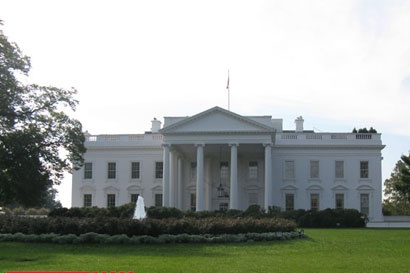White House, Congress divided over imposing new sanctions on Iran

By Sara Rajabova
The U.S. government and the Congress still remain divided over imposing new round of sanctions on Iran over its nuclear energy program. The White House and Congress once again came face to face on the necessity of hitting Iran with new sanctions before the world powers and Islamic country finalizes talks on clinching final deal over Tehran’s nuclear energy program.
The Congress is considering the new sanctions bill in time as the representatives of the six world powers and Iran are engaged in intensive nuclear talks to resolve the decade-old nuclear dispute.
The U.S. Senate Banking Committee voted 18-4 on January 29 to advance a bill, introduced by Senator Mark Kirk and Senator Robert Menendez that would toughen sanctions on Iran if international negotiators fail to reach a nuclear deal by the end of June, Reuters reported.
President Barack Obama has threatened that he would veto any bill considering new sanctions on Iran saying it will “negatively affect” the negotiations with Tehran.
The Obama administration is in favor of continuation of negotiations to reach a nuclear deal with Iran and therefore, is ready to prevent any action that will torpedo the talks. Some experts believe that Obama administration wants to secure itself from its failed foreign policy strategies, for which it recently went on harsh criticism.
Meanwhile, the Congress itself hasn’t common vision regarding the new sanctions on Iran. A group of congressmen back passing of the bill to force Iran to deal in good faith, but others suggests waiting until the June 30 deadline and see whether the world powers and Tehran could reach a deal or not.
Thus, a group of congressmen announced that they will hold off for two months allowing time to reach a diplomatic solution. The bill on toughening sanction on Iran is not expected to come up for a vote in the full Senate until at least March 24, Reuters reported.
“Enacting new sanctions before the end of negotiating period would gravely undermine our efforts to reach an agreement with Iran,” Reuters quoted Democratic Senator Dianne Feinstein, a leading co-sponsor of the resolution along with Senator Chris Murphy.
Meanwhile, the Iranian parliament has warned that Tehran will scale up its nuclear program in case Capitol Hill imposes further sanctions against the country.
“If the U.S. Congress makes the slightest move to ratchet up sanctions against Iran, parliament will instruct the government to take measures to further advance its nuclear objectives and increase uranium enrichment for peaceful purposes as much as needed by the country,” Iranian media quoted Mohammad-Hassan Aboutorabi-Fard, first vice speaker of the Iranian parliament as saying on January 29.
On the other hand, at least 80 Iranian MPs have signed a bill that will oblige the administration to cancel the Geneva nuclear deal, if the U.S. Congress imposes new sanctions against Iran.
Hossein Naghavi Hosseini, Spokesman for Iranian Parliament Commission said according to the bill if the U.S. takes new steps to impose sanctions, Iran would cancel the Geneva nuclear deal and resume its suspended nuclear activities.
Besides, Iran’s foreign minister warned that the talks won’t be extended anymore, if the sides fail to reach by the deadline.
The Iranian side said the political will of negotiating sides is needed for reaching agreement over the nuclear dispute.
The European allies of the U.S also are not delighted with the Congress plan to step up sanctions against Iran.
The German government warned against the repercussions of the US Congress’ plan tightening sanctions on Tehran.
Martin Schaefer, German Foreign Ministry Spokesman has recently dismissed any attempts as wrong to damage the ongoing highly sensitive diplomatic talks between Iran and the six world powers (the U.S, Russia, China, Britain, France and Germany).
The imposition of new sanctions and restricting the economic relations with Iran is not beneficial for Europe, especially in time when its relations with Russia have soured after the Ukraine crisis.
Both sides awaits the concession from each other, however none of them is willing to make it first.
Besides, the pressure exerted on the negotiating teams from both sides makes it difficult to come to a conclusion and reach a deal. On one hand the presidential administrations of the negotiating countries, in particular Iran and the U.S. are willing to continue the talks till reaching the agreement, and on the other the parliaments are the supporters of tougher position over this issue.
However, the sides still have time for bridging the gaps between them. Currently, the negotiating teams of Iran and world powers are holding intensive talks on reaching comprehensive agreement on Tehran’s nuclear program.
Since an interim deal was agreed in Geneva in November 2013, the negotiating sides have missed two self-imposed deadlines to ink a final agreement.
Iran and the six powers now seek to reach a high-level political agreement by March 1 and to confirm the full technical details of the accord by July 1.
--
Sara Rajabova is AzerNews’ staff journalist, follow her on
Twitter: @SaraRajabova
Follow us on Twitter @AzerNewsAz
